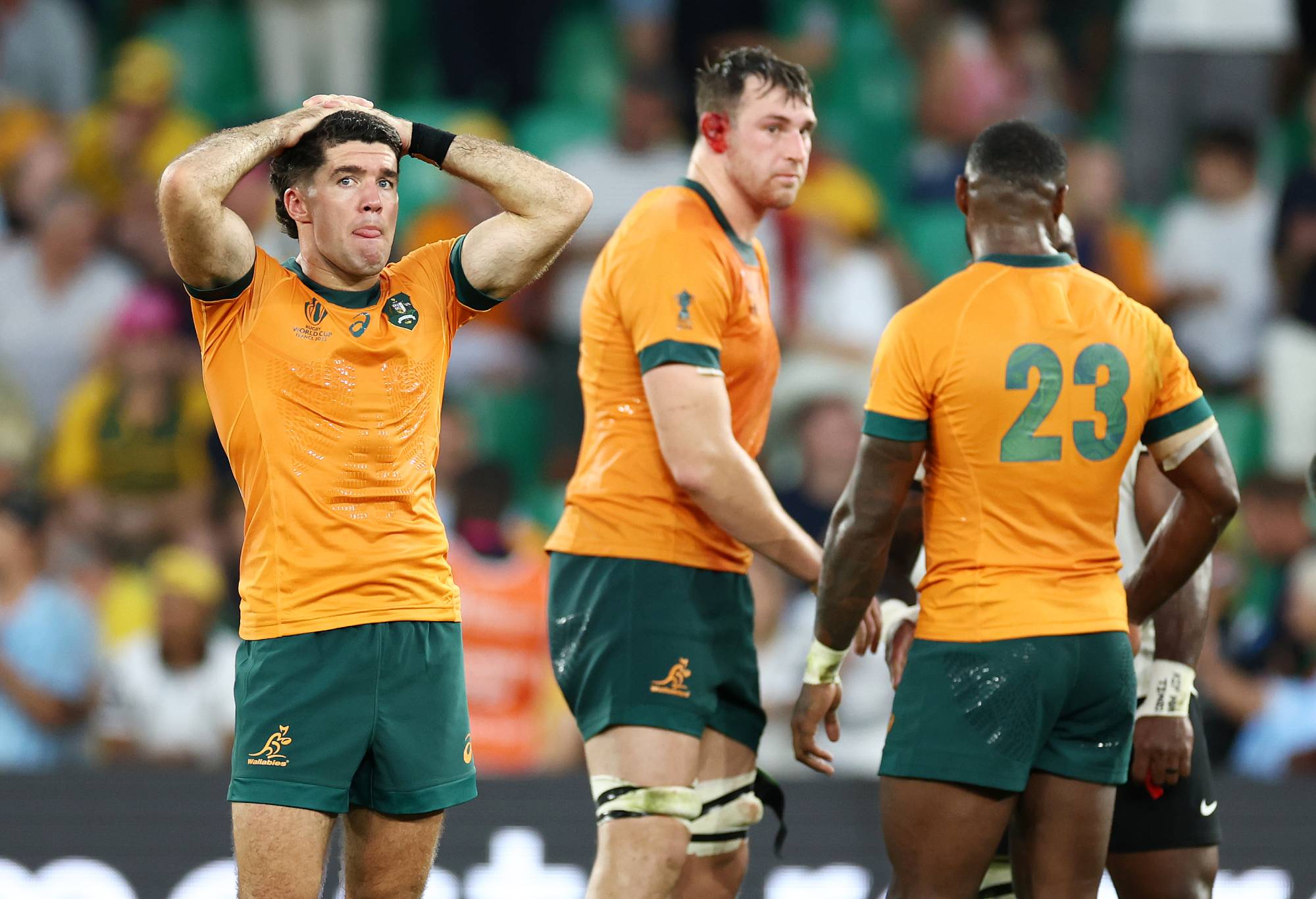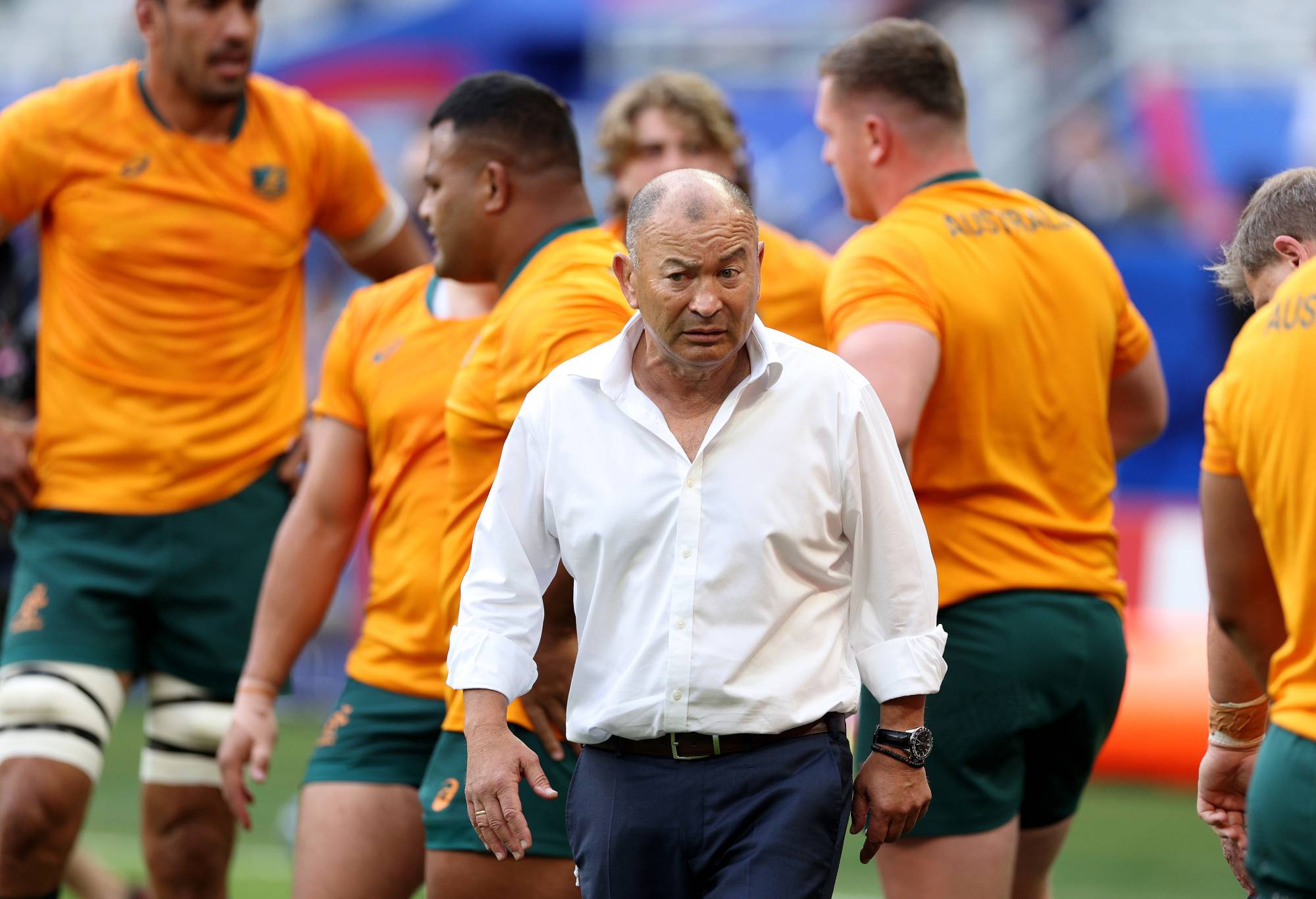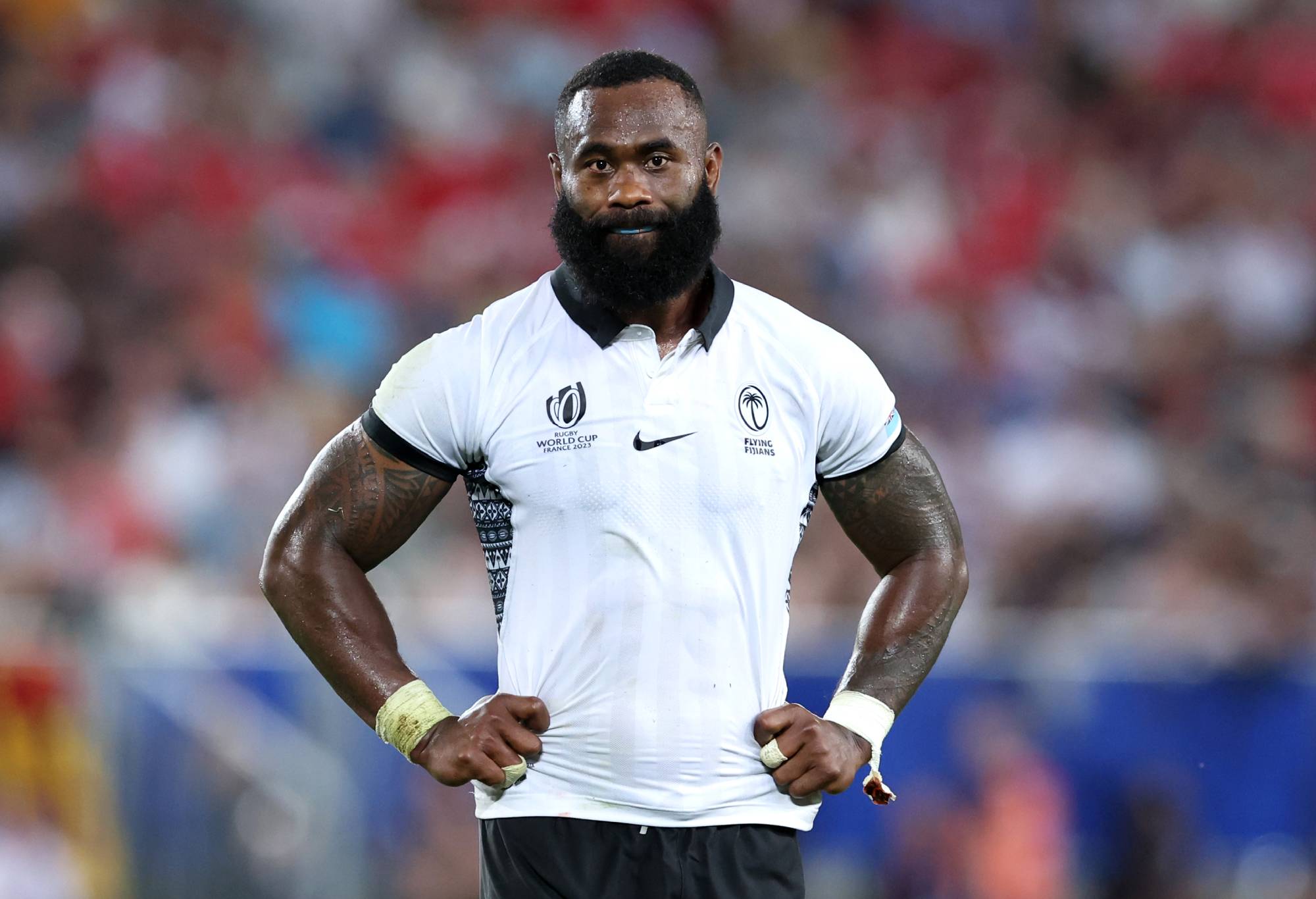It was my mate and rugby-writing colleague at The Sydney Morning Herald, the late Greg Growden, who coined the phrase ‘Woeful Wallabies.’
Greg did not tap out his verbal invention when the Wallabies were beaten playing gamely and with spirit against a better team. No fan can expect their team to win every Test. What they can demand is a certain competency, determination and spirit to inform the team’s play.
Not to be woeful, in other words, in the eyes of their supporters.
Under Greg’s definition the Wallabies were woeful in their 22-15 loss to Fiji at Stade Geoffroy-Guichard.
The reasonably close scoreline, which gave the Wallabies a crucial bonus point for being within 7 points of Fiji, was not a true reflection of the match.
The fact is that Fiji smashed the Wallabies in every department of the match, except the lineout where they lost six throws because they refused to take the option of the quick, sharp throw to the front of the lineout.
This was the only tactical mistake Fiji made in a tour de force exhibition of modern collision rugby on attack and defence.
And this was against a side that has won two Rugby World Cup, admittedly in 1991 and 1999. It was no flat wicket bully triumph like, say, the All Blacks smashing Namibia 71-3, with 11 tries scored in wet conditions.
Julian Linden in his match report for News Corp, made this devastating comment on what went wrong for the Wallabies: ‘(Eddie) Jones was left wondering where it all went wrong but answers were in front of them in the match statistics. The Wallabies conceded 18 penalties. They missed 23 tackles. They turned the ball over 11 times. They kicked the ball away a staggering 29 times.’
Greg Growden had another epithet for this type of stupid play, ‘Fort Fumble.’
The point about the 18 penalties, a horrendous number in any rugby context but especially in a RWC tournament, is that 11 of them were at the breakdown. Moreover, 10 of these penalties were conceded in the first 50 minutes of the match which, in turn, allowed Fiji to build up a strong lead with some accurate goal-kicking.

(Photo by Chris Hyde/Getty Images)
The breakdown contest is all about determination, rugby intelligence and technique. The Fiji side had all these attributes plus the benefit of clever coaching that gave them a method where virtually every Wallabies carry became an opportunity for Fiji to win a penalty.
It was very noticeable to me watching this breakdown method that Fiji generally sent only one fetcher into the ruck after a Wallaby had been tackled.
This system allowed the Fiji fetcher to have a clean shot at the tackled Wallaby to effect a turnover. Having a clean shot over the ball meant that the Fijians, backs and forwards, for it was an all-team fetching onslaught, could have an excellent chance of making the turnover while, crucially, avoiding breaking any of the complex ruck laws.
The Wallaby coaching staff never adjusted their team to Fiji’s fetching system. This was a coaching failure in the heat of battle.
They did not instruct their players to commit more players to the ruck to allow the tackled player some support in re-cycling the ball. This is the equivalent of not sending in reserves to bolster a position that has been penetrated in a battle zone.
The result that even towards the end of the match the Wallabies were conceding turnover penalties.
The other failure of the Wallabies coaching staff was allowing the aimless kicking their side indulged in.
Where were the wingers dropping back to run the ball in counter attacks launched from Fiji kicks?
Again, even at the end of the match when the Wallabies were trying to claw their way back from being two scores behind, the aimless kicking continued.
This is not an argument against kicking the ball away in big matches. In fact, modern rugby theory has it that the team that kicks most in big games usually wins them.
France, for instance, kicked the ball away 44 times against the All Blacks. But there was method in this kicking. The kicks were varied, long to force territory gains, short to be retrieved by a charging pack, little dinks over the top of the All Black backs to be re-gained, or tantalising high balls to be re-gathered or for the catcher to be smashed and the ball recycled by a rampaging French pack smelling blood.
But remember the opening match of the RWC started around 9pm on a night of high humidity. The players were smothered with sweat from the opening minutes. The wet weather ball being used quickly became as slippery as a greasy and hard to control as startled piglet.
It was one of those nights when the best form of attack was kicking the ball to the opposition to force them to make mistakes and give away kickable penalties. The French did this well. The All Blacks kicked poorly.
My theory for this is that New Zealand and Australian rugby teams are at their best when they are running the ball, when they play ‘The Running Game,’ as Peter Fenton’s wonderful ode proclaims:
‘There is a spirit in the Wallabies
‘Mere words cannot describe …
‘It’s the camaraderie that’s born of valour not fame,
‘It’s the sheer exhilaration when you play the running game.’
Eddie Jones proclaims to be a ‘Randwick Man’ in his coaching beliefs. He must know that the Randwick game that gave them the affectionate nickname ‘The Galloping Greens,’ was based on running the ball.
In the club’s glory days, which coincided with the two RWC triumphs, the club had a rule that if the ball was kicked in general play and not for touch it was incumbent on the kicker to ensure that it was won back and used to attack the defence with the ball in hand.

(Photo by Warren Little/Getty Images)
There was none of this thinking in the kicking of the Wallabies.
A brutal summary of their play against the rampant Fijians would be to state that the Wallabies lost the ground battle, the air battle, the kicking battle, the scrum battle, the ruck battle, the advantage line battle, the tackling battle and the will-to-win battle.
Woeful Wallabies, in other words.
FLYING FIJI ARE FINALS BOUND
The rugby media is making a fuss over the fact that Fiji’s victory over the Wallabies was their first since 6 June, 1954 at the SCG when a fired-up Fiji kicked a penalty after full-time to win one of the most ferocious Tests ever played in Australia.
The real issue, to my mind, isn’t why Fiji hasn’t defeated the Wallabies since 1954 but why this famous victory happened at this RWC tournament, 69 years after the Battle of Sydney.
The answer is that up to RWC 2023 there were limited opportunities for Fiji to play much Test rugby. And as a consequence, there was hardly any infrastructure in place in Fiji to run a coherent international rugby program.
Each RWC tournament, in effect, required Fiji to start-up its Test side.
Fiji played in the first RWC in 1987. They were defeated in the Pool Round by the All Blacks 74-13, the first time the two teams had played each other in an official Test. They have played in all the other RWC tournaments since then, except RWC 1995 in South Africa when they did not qualify.
Fast forward now to July 2017. In that month the Fiji Rugby Union announced the creation of the Drua, a team of Fijian home players to compete in Australia’s National Rugby Championship.
In 2018, the Drua won the NRC title. In 2022 the Drua were promoted to the Super Rugby championship. In 2023 the Drua made the finals where they were defeated by the Crusaders.
The Drua players are professional players and make up about half of the Fijian squad in France. The rest of the Flying Fiji squad are professionals who play in France and the UK.
This combination of players playing with fellow Fijians in a Southern Hemisphere tournament near to home with other Fijians playing for European and British clubs gives the Flying Fijians a kind of best of all rugby worlds preparation for a RWC tournament.
The World Cup squad was given a commandos training and bonding regime for several months in Fiji by their coach, New Zealand born, Simon Raiwalu, who was a captain of Fiji in his playing days.
“We pushed them really hard, sometimes four-a-day training sessions, we wanted to push them and see where they could end up”” he told journalists. “You’re only as strong as your weakest, and our boys are so tight as a group.”

(Photo by Alex Livesey/Getty Images)
All this effort, rugby know-how and team-work came together in the dying minutes of the match against the Wallabies when the Fiji pack put on a mighty shove and won a crucial scrum penalty against a tired, lack-lustre Wallabies pack.
Planet Rugby picked its RWC Team of Round Three on Monday. Three Fijians, the most of any team along with the Springboks, were selected – Waisea Nayacalevu, Josua Tuisova and Levani Botia.
Led by these three outstanding players, Fiji is in the box seat to emerge from its Pool of Death into the finals. The key to this was the six points the team gained in its match against Wales and the Wallabies.
This gives Wales and the Wallabies an extremely difficult road to the finals for both teams, if Fiji wins bonus points against Georgia and Portugal.
The Wallabies then have win with a bonus point against Wales to have a chance of making the finals, barring an upset.
But if they do this, Wales will somehow have to win a bonus point against the Wallabies to stay in the tournament.
This is not an impossible equation but unlikely.
This is why I’m making the prediction that the Flying Fiji are finals bound.
There is no team in Pool C and Pool D, with the Big Four, Ireland, South Africa, France and New Zealand playing in Pool A and Pool B, that has the form so far to beat the Fiji.
So I am making a more fearless prediction that the Flying Fijians will make the RWC semi-finals for the first time in their history.
Bula. Bula.































































































